Best houseplants with dark foliage – these 7 plants will add a moody accent to your interiors
The dark, rich foliage of these purple, black and burgundy houseplants will give your home an instant update
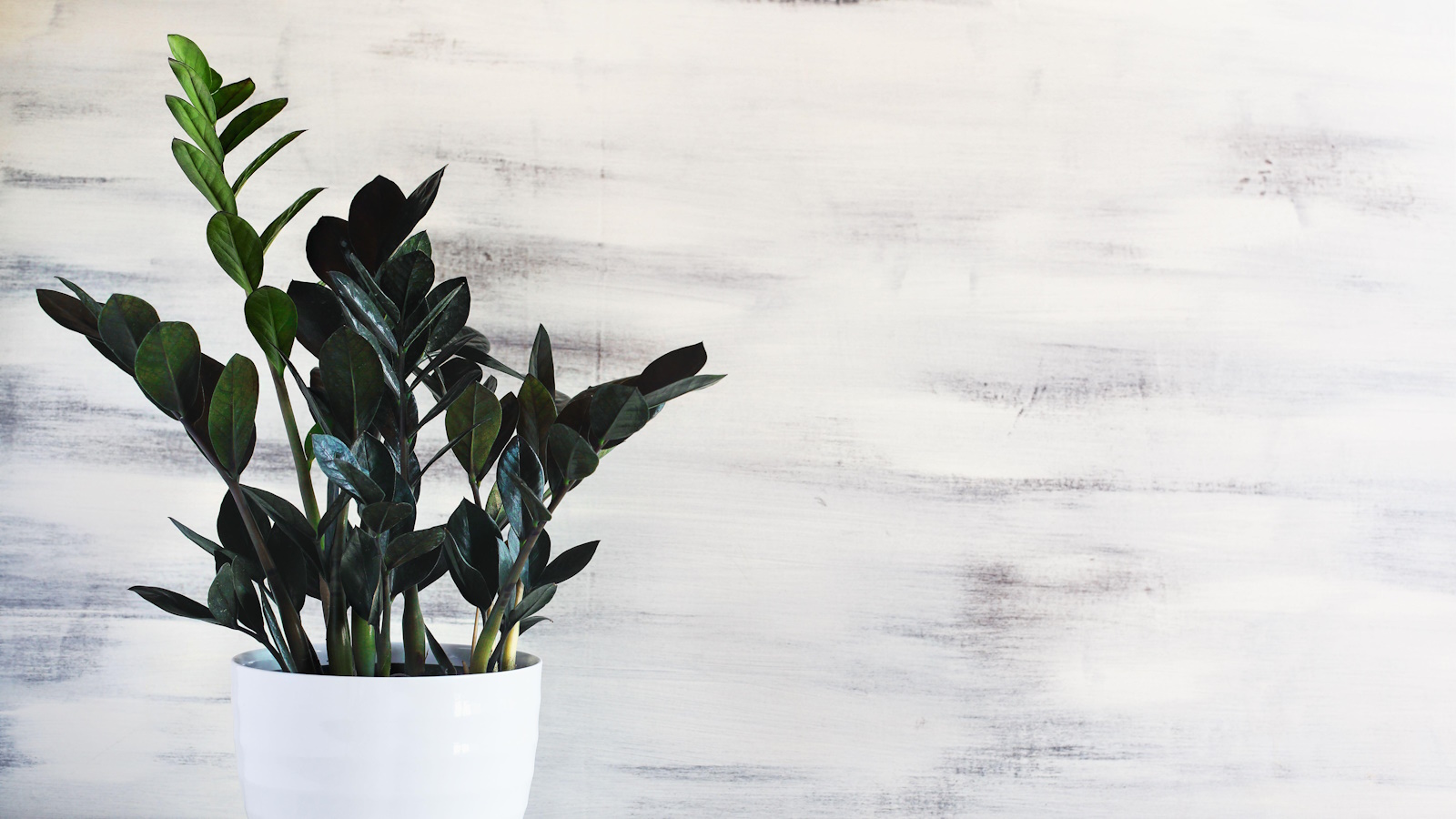
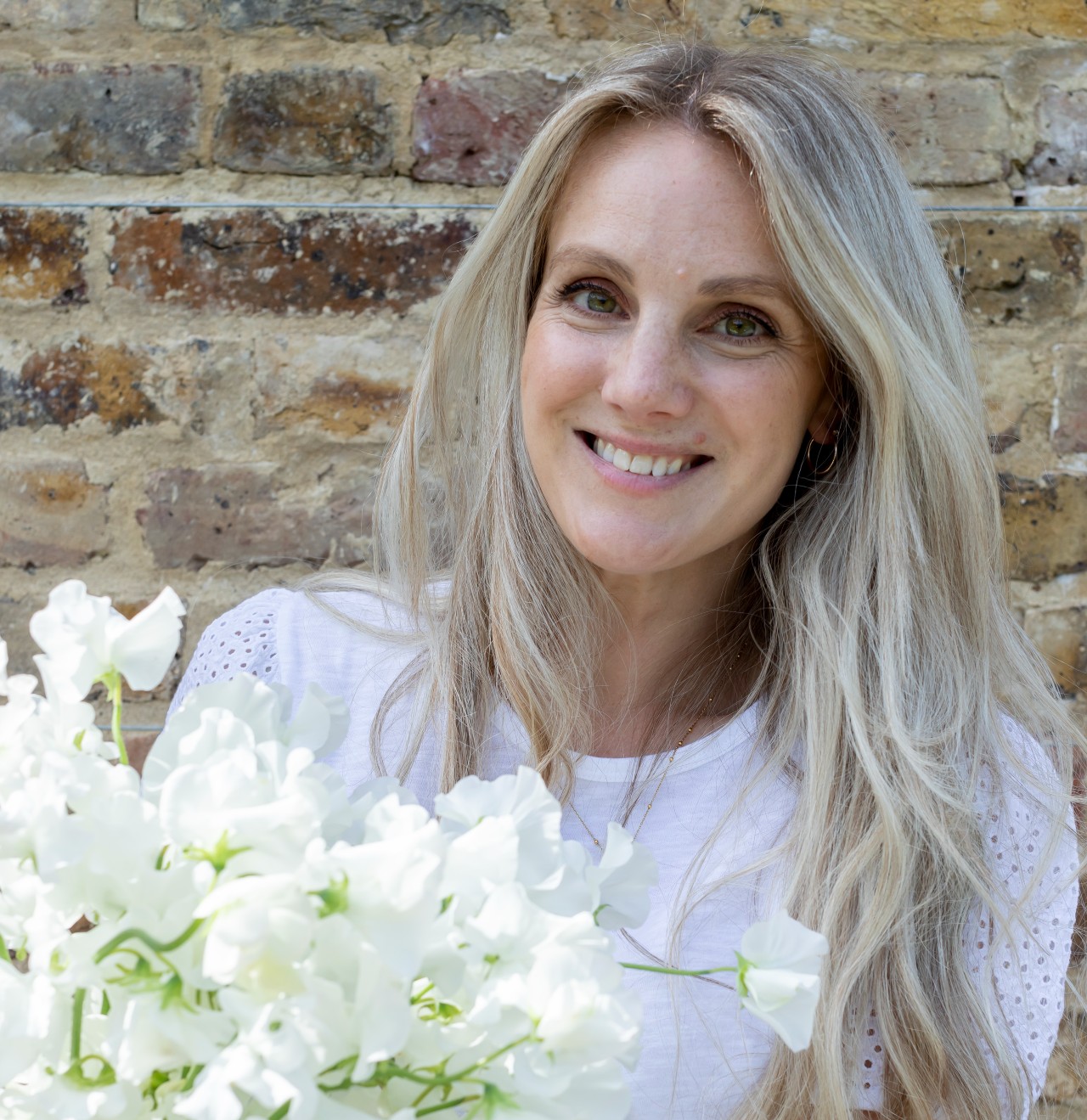
Moody and cozy color palettes are having a moment. Darker shades can enrich our interiors and make a big impact on any space. If, however, committing to painting a whole room a deep shade of burgundy feels a bit daunting, there is no better way to add moody, textural accents than by using houseplants with dark foliage.
Since I began collecting and propagating houseplants 10 years ago, I’ve often been drawn to ones with darker and more unusual foliage, as I feel they can work harder for you. They can add depth, texture and cozier shades to a space, without you having to make any permanent changes or commit to a paint color, for instance.
One of my favorite houseplants, and among the best indoor plants around in my opinion, is my gorgeous oxalis (or false shamrock), which I’ve had for many years and has survived several house moves. I have always loved the shape of its near-geometric leaves and the way each one floats on the end of a single stem, as if being flown like a kite.
Here, I’ve gathered a list of seven houseplants with dark foliage, in shades of deep purple, burgundy and black, which I think would be perfect for adding that stylishly moody touch to your home.
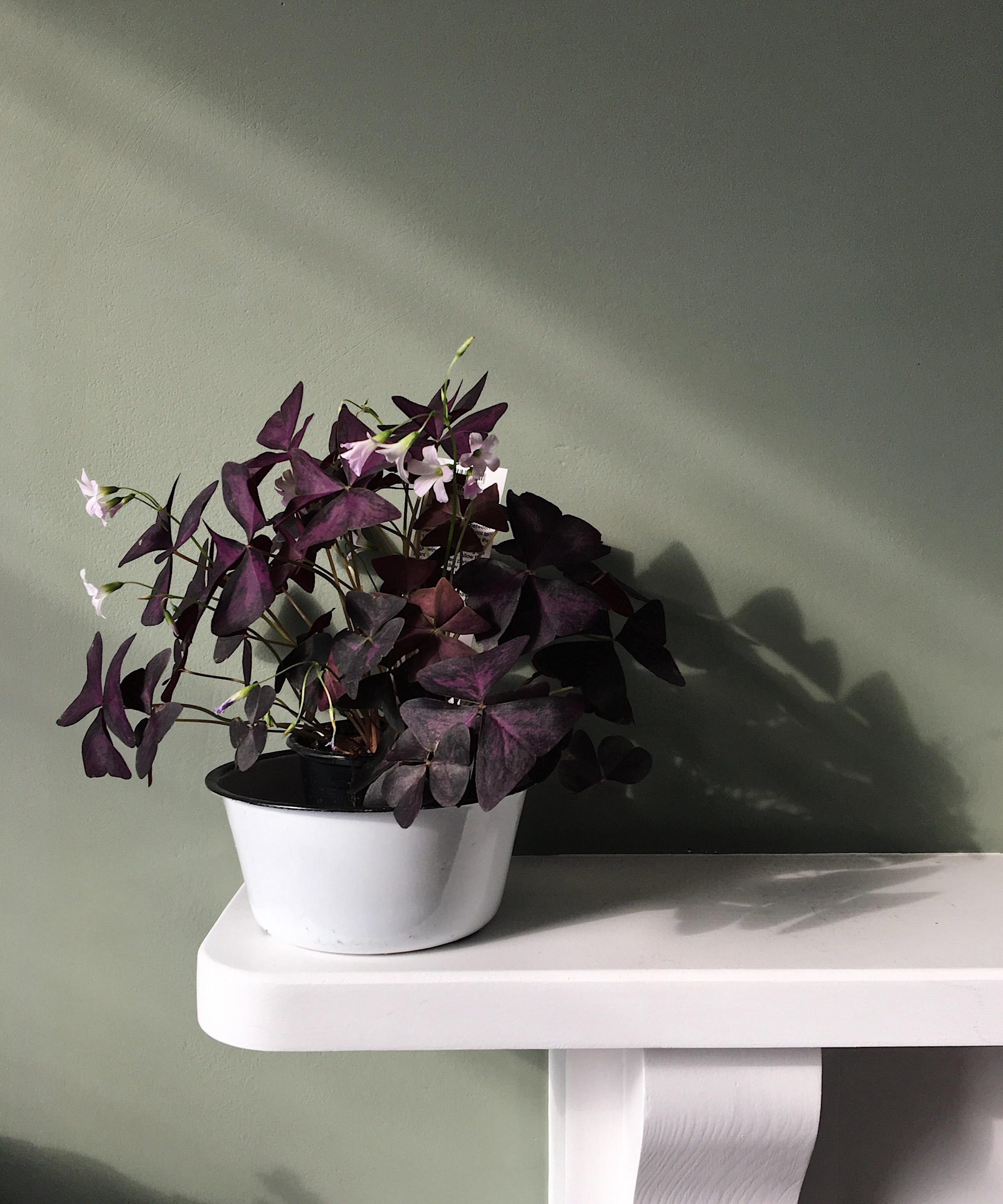
7 of the best houseplants with dark foliage
Grab one of these eye-catching plants to add a dark and cozy contrast to your interiors.
Raven ZZ
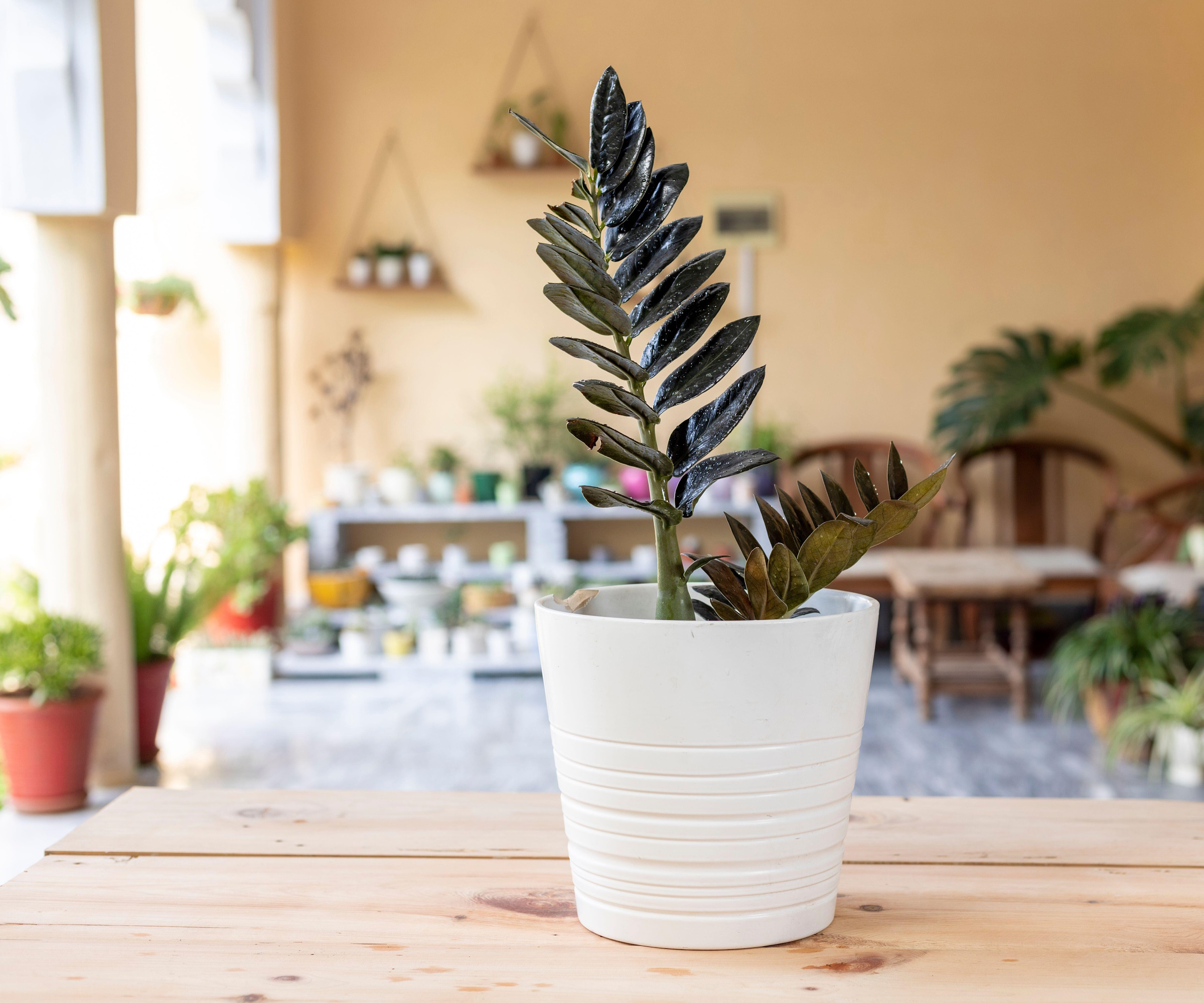
The leaves on the raven ZZ plant are so dark they are almost entirely black and make a serious design statement.
Houseplant stylist and author Hilton Carter agrees. 'I'm so in love right now with the raven ZZ,' he told H&G in a recent interview. 'From a designer perspective, there are so many people who are creating these different sorts of looks in their home using darker foliage plants right now - it's a whole thing.'
He said that if you're a minimalist, having one burgundy plant would make a striking effect. 'You can really create a particular look with these dark leaf plants. The raven ZZ does this, and it's also very low maintenance. So I feel like that's a special one.'
It is indeed easy to care for and has a structured feel to it, which you can see from this raven ZZ plant available from Fast Growing Trees.
Care level: Easy
Best for: Stylish minimalists
Top tip: Keep in bright but indirect sunlight

Hilton Carter is a director, editor, and fine artist who is passionate about plants – his home is filled with them. He regularly shares his encyclopedic knowledge of plant care and styling to his social media followers. Hilton’s fifth book The Propagation Handbook, published by CICO Books and available to pre-order from Amazon, is out in April.
Oxalis
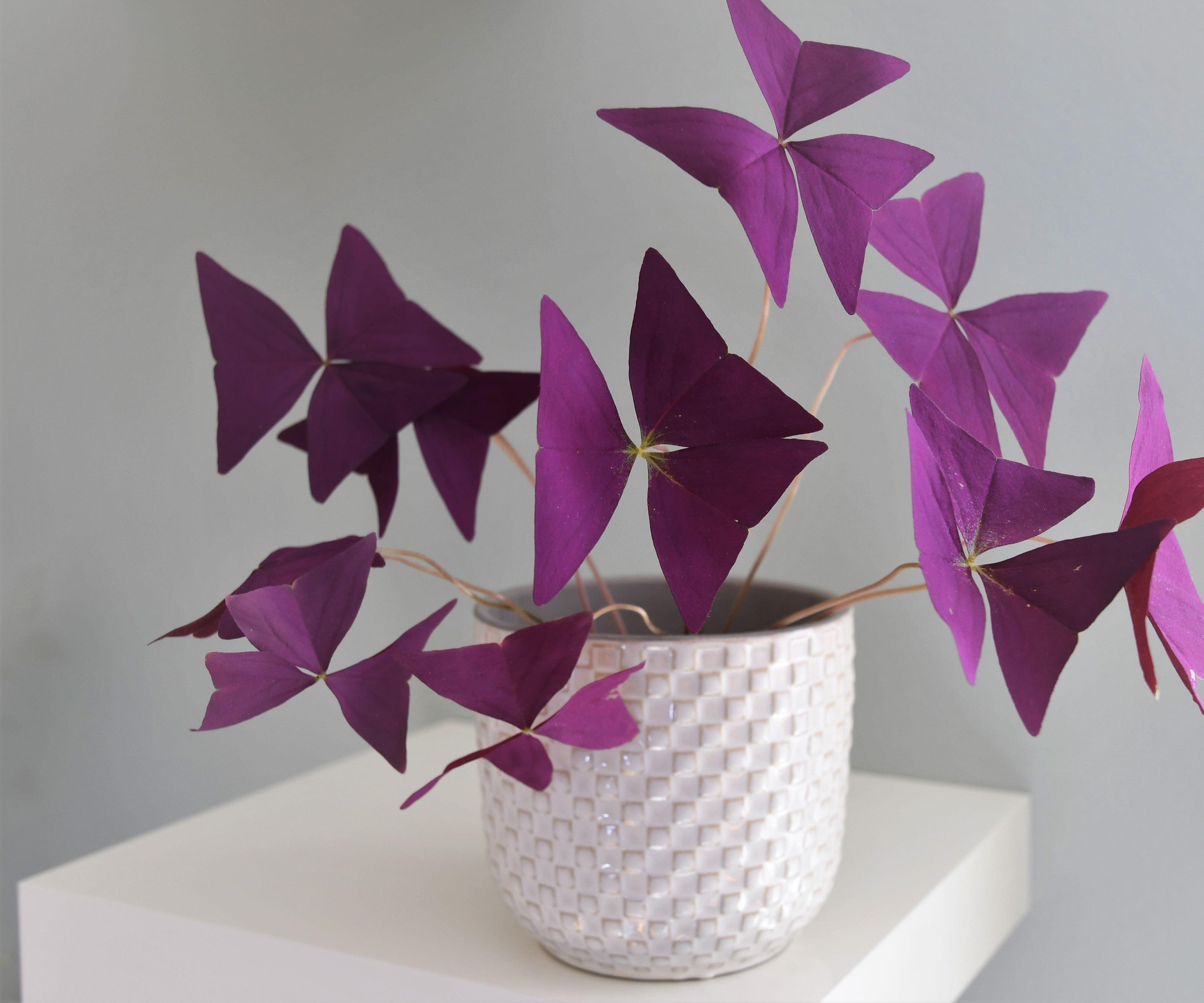
My firm favorite among these houseplants with dark foliage, the oxalis - or false shamrock - is another stylishly structural plant, but with more movement compared to the raven ZZ.
Oxalis will also delight you with tiny pale pink or white flowers during the growing season, which adds to the delicateness of this plant.
They are relatively easy to grow and care for, but do not like draughts or direct sunlight. I keep mine on a high shelf in a bright room, but away from any radiators and other indoor heat sources
Care level: Intermediate
Best for: Fans of mid-century modern style
Top tip: Avoid over-watering
Tradescantia zebrina
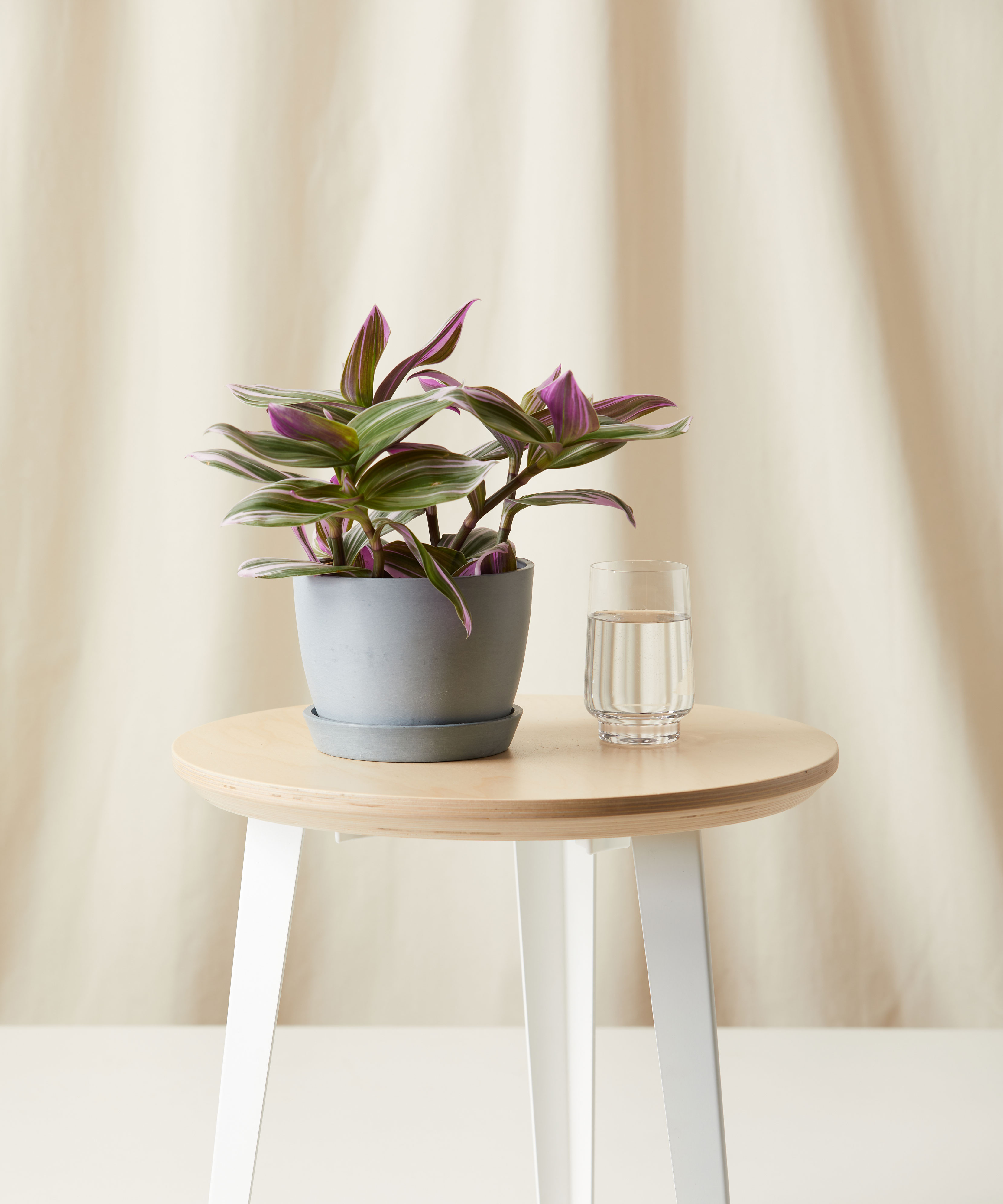
The unique leaves on the trailing Tradescantia zebrina blend beautifully from a rich dark green to a lighter purple and sometimes pink. It is an enchanting houseplant, and provided you know how to care for one and give it the right conditions, it will thrive.
Thanks to its soft trailing vines, it would make a good bedroom plant if placed in a cozy reading nook or even on a shelf above a bed.
Care level: Easy
Best for: Making a statement on a shelf
Top tip: Pinch the tips to encourage bushier side growth
Polka dot begonia
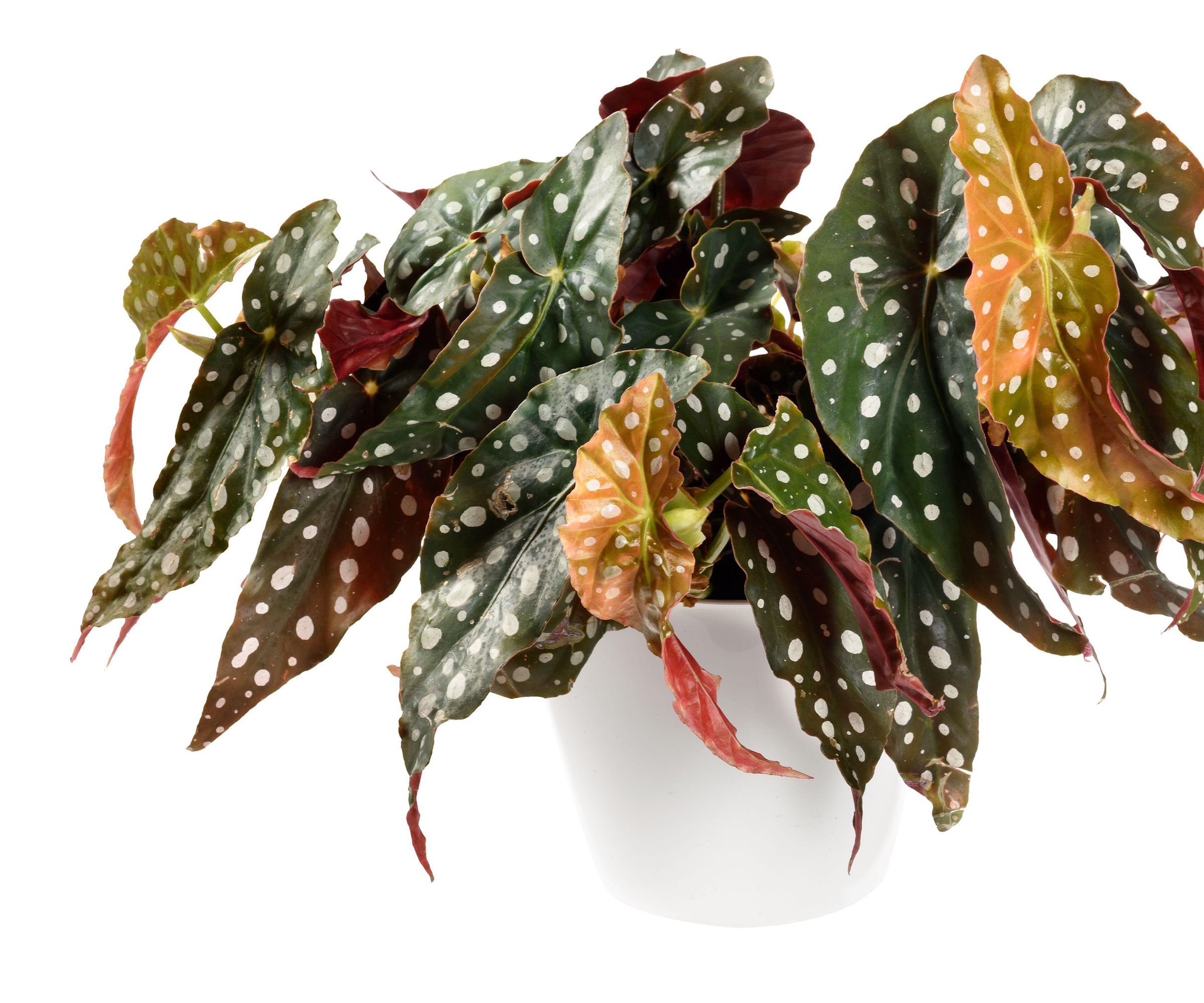
With glossy, forest green leaves, a dark burgundy underside, and white polka dots to boot, is there anything the polka dot begonia doesn't give us in terms of style?
'I'm still a huge fan of the polka dot begonia,' says Hilton Carter. 'It has such a cool design, that can pair well with other different patterns in your home.'
The Begonia maculata is a little fussy about its growing conditions. It is a tropical plant, and likes temperature to stay between 65 and 70F. It also wants a consistent level of humidity. It's tempting to over-water a tropical plant, but resist the temptation and only water a couple of times a week.
Care level: Tricky
Best for: Lovers of print
Top tip: Place it in front of a bold wallpaper for a delightful clash of prints
Purple waffle plant
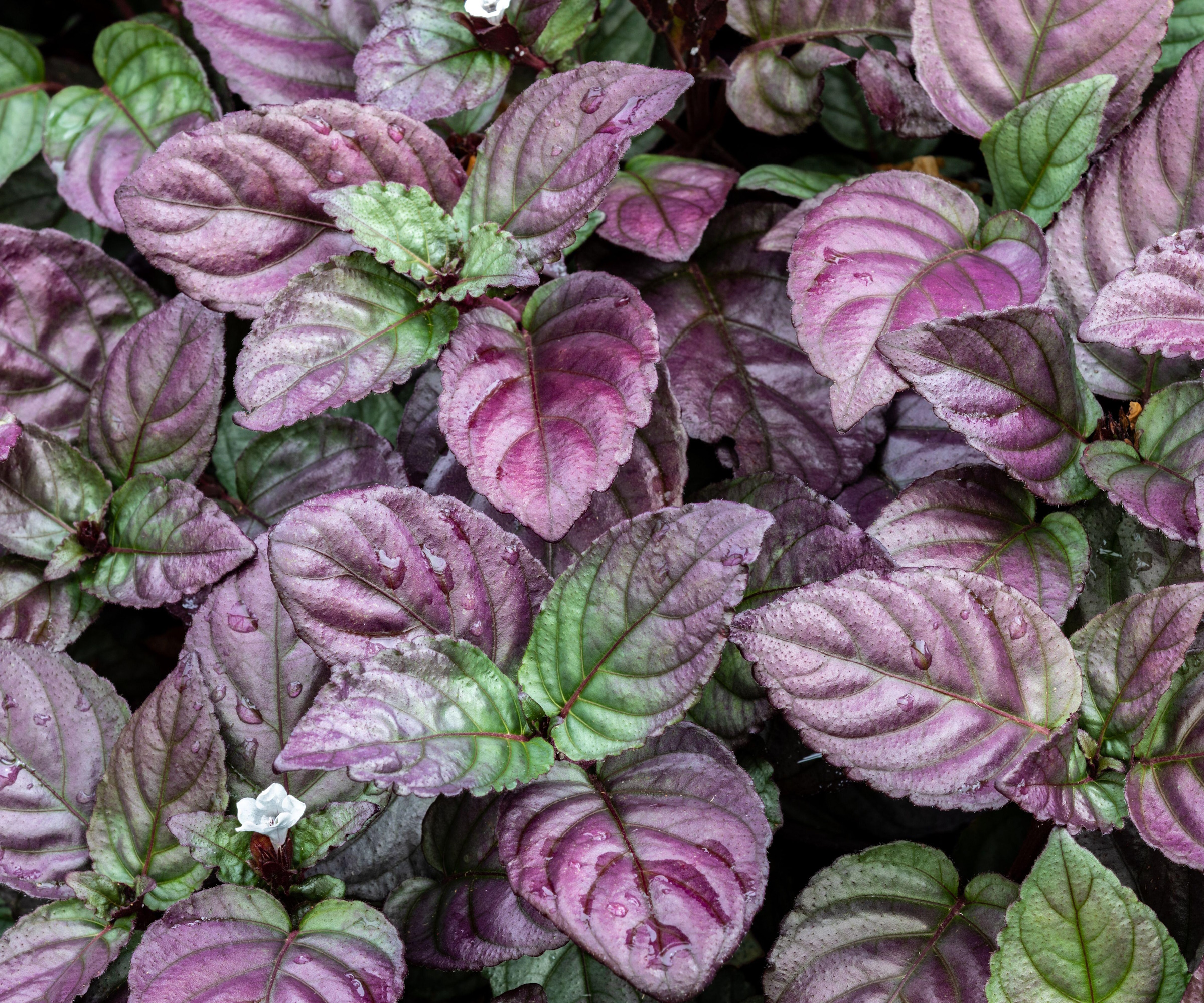
Another unusual houseplant is the purple waffle, with it's rich purple foliage that is delicately textured all over. It's a fairly small plant, so would work well as a darker accent on a desk or entryway sideboard, where space is often limited.
This plant will produce small white flowers during the summer months, adding to it's charm.
Care level: Easy
Best for: Lovers of texture
Top tip: Keep the soil consistently moist
Sweet potato vine
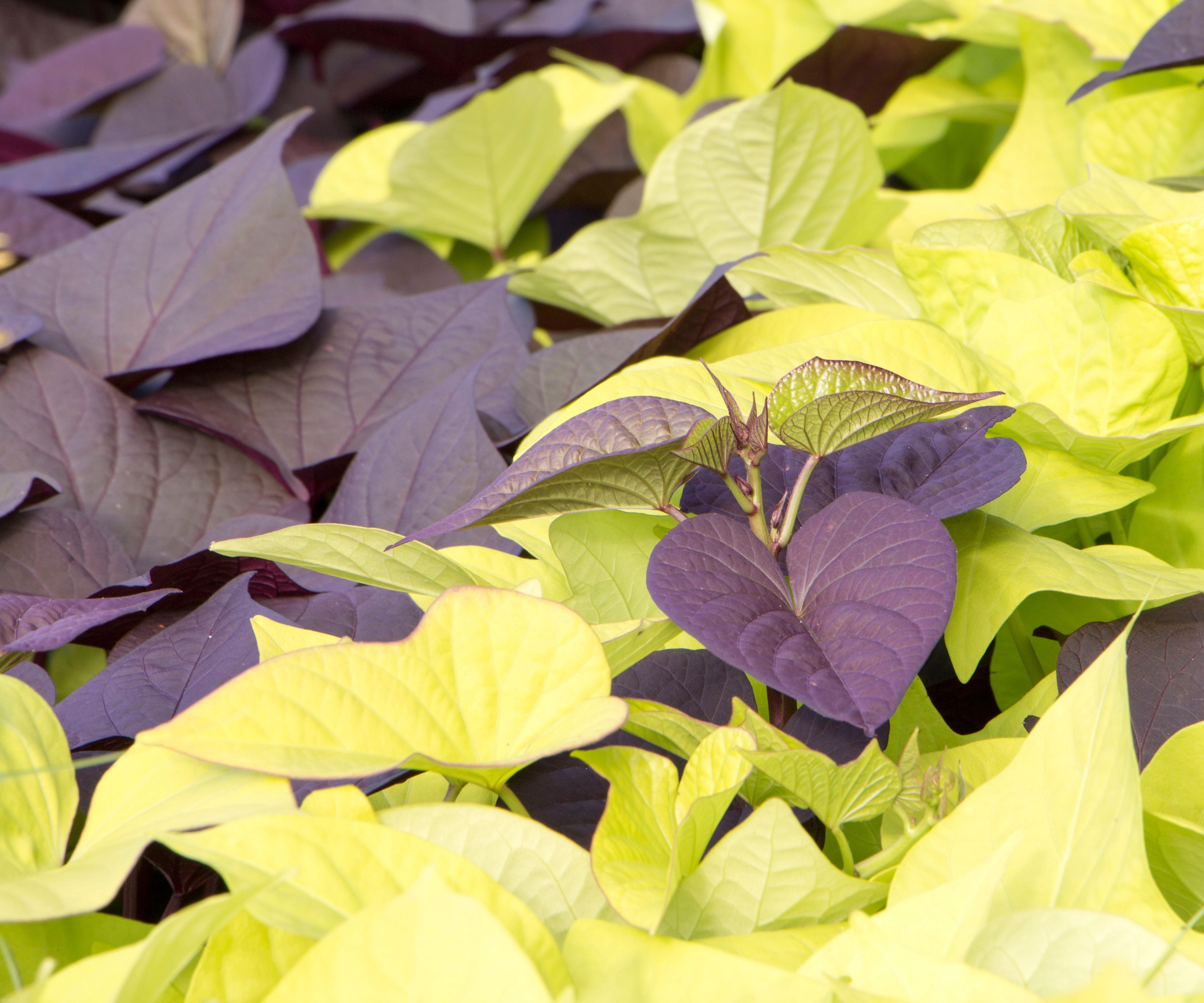
If you are looking for some lush, dark purple foliage to grace your kitchen, consider growing a sweet potato vine.
It might be more of an unusual option, but once it starts to grow this vine will create a luscious, leafy plant. It may even require staking or securing around a trellis once it matures.
Care level: Intermediate
Best for: Indoor kitchen gardeners
Top tip: Snip the edible shoots to use in salads or as a garnish
Rubber plant
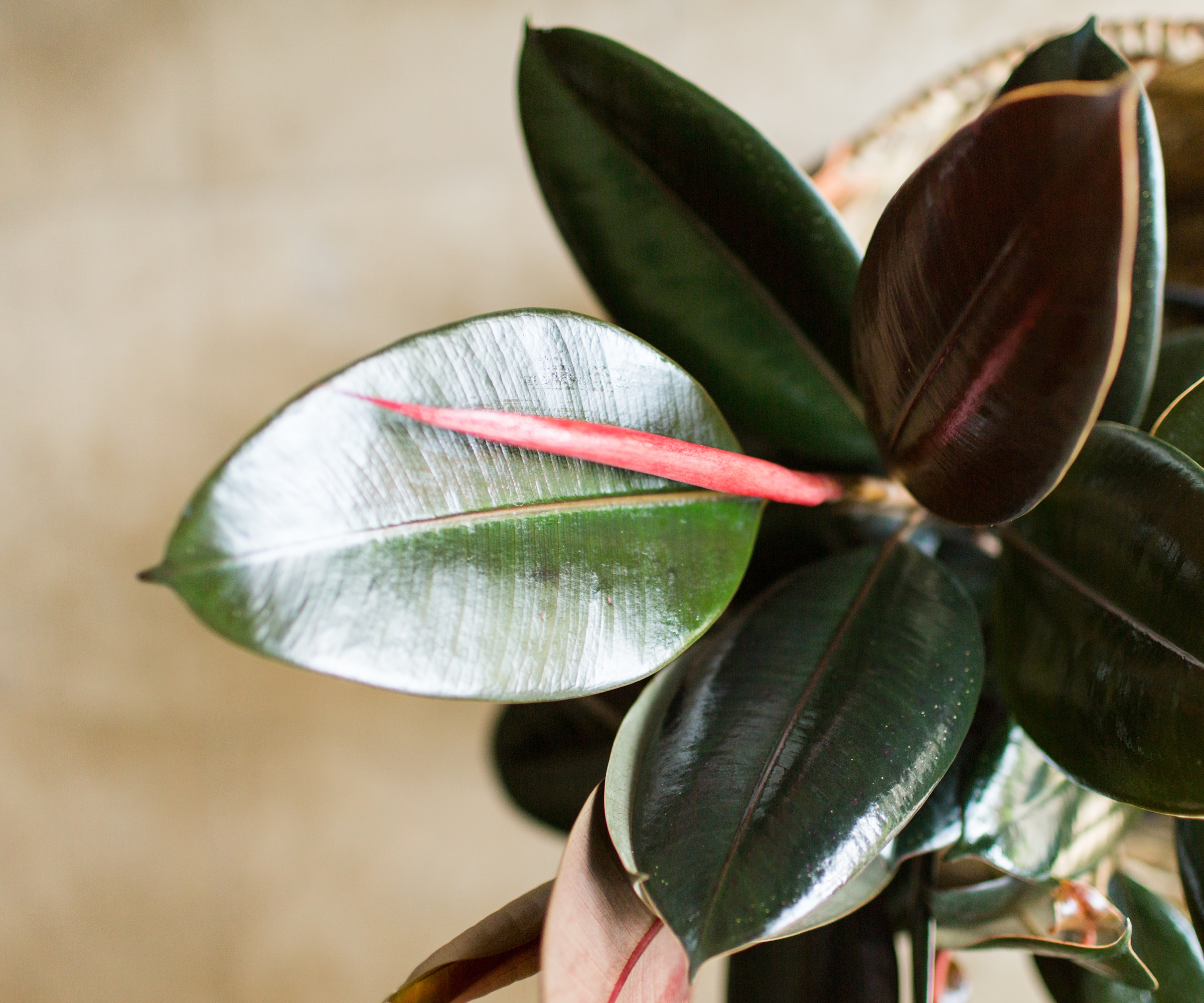
Stylishly elegant, with its satin smooth foliage, the Ficus elastica gets its name from its strong and thick leaves. When combined with its size and stature, the dark green and burgundy tones of the foliage make for a bold statement, as can be seen from this rubber plant available from Greendigs.
Caring for a rubber plant is fairly simple. It is naturally a jungle plant, and will enjoy a being misted during the summer months. Remember to give those large leaves a wipe every so often to clean them of any dust.
They are fast-growing plants, so make sure to repot yours if you want to encourage even more growth. Consider combining with a sleek, black planter to create a contemporary focal point.
Care level: Easy
Best for: Bold statements
Top tip: Style by grouping several rubber plants together or contrast with feathery palms and fern plants
With rich, earthy tones and a myriad of textures, these houseplants with dark foliage offer up unquestionable style. If you like the idea of styling with houseplants, you might want to learn different ways to decorate with plants in your home.
Sign up to the Homes & Gardens newsletter
Design expertise in your inbox – from inspiring decorating ideas and beautiful celebrity homes to practical gardening advice and shopping round-ups.

Rachel is a gardening writer, flower grower and floral designer. Her writing career began on Country Living magazine, sparking a love of container gardening and wild planting. After more than a decade writing for and editing a range of consumer, business and special interest titles, Rachel became editor of floral art magazine The Flower Arranger. She then worked as a floral designer and stylist for six years, before joining Homes & Gardens. An expert in cut flowers, she is particularly interested in sustainable gardening methods and growing flowers and herbs for wellbeing. In summer 2024, she was invited to Singapore to learn about the nation state's ambitious plan to create a city in nature, discovering a world of tropical planting and visionary urban horticulture.
-
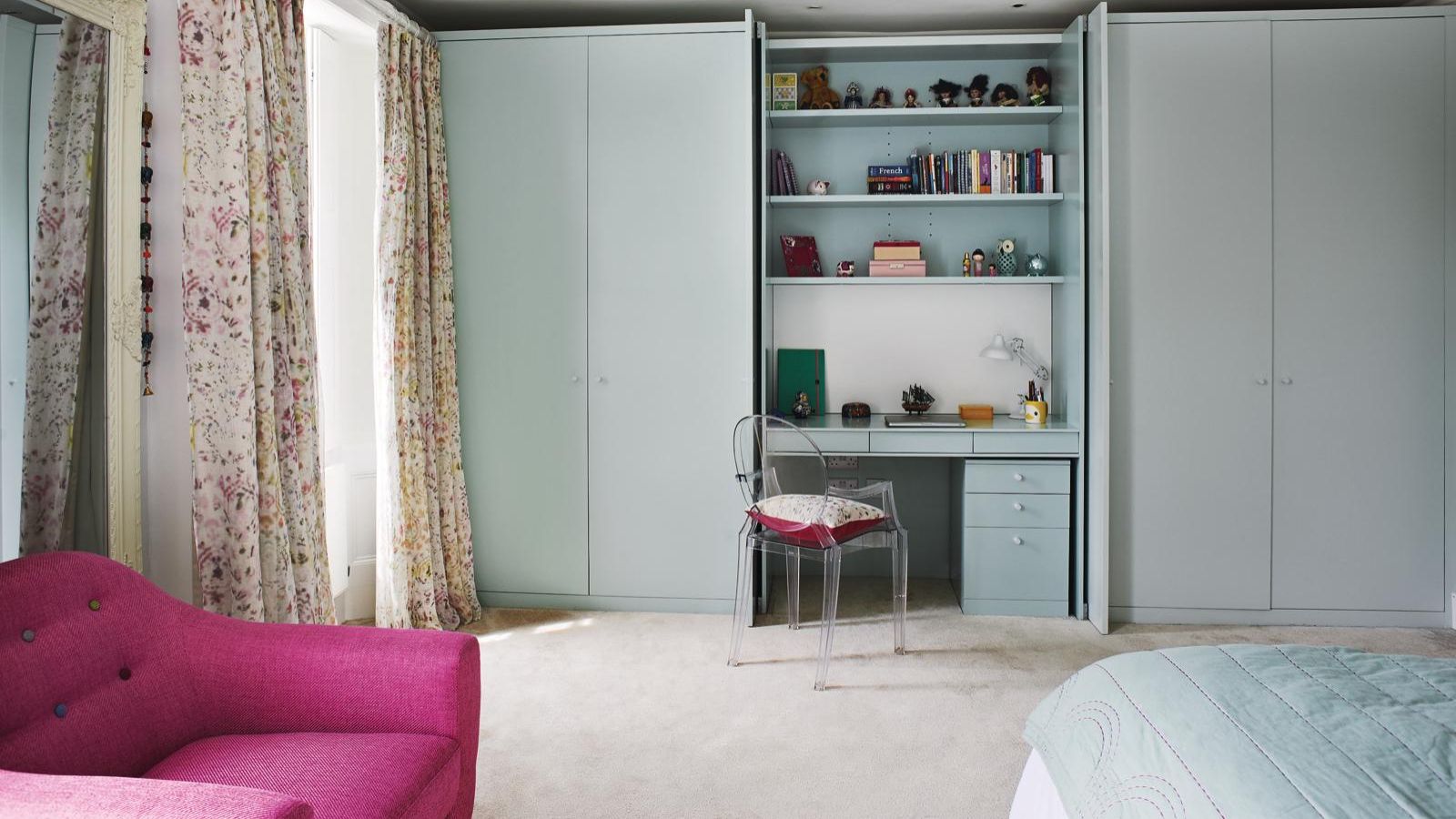 I always get my small space storage from Wayfair – and these discounted $35 stackable Martha Stewart storage boxes are the perfect fix for my tiny vanity
I always get my small space storage from Wayfair – and these discounted $35 stackable Martha Stewart storage boxes are the perfect fix for my tiny vanityI'm going vertical for tiny space storage success with this Early Way Day 2025 bargain
By Punteha van Terheyden
-
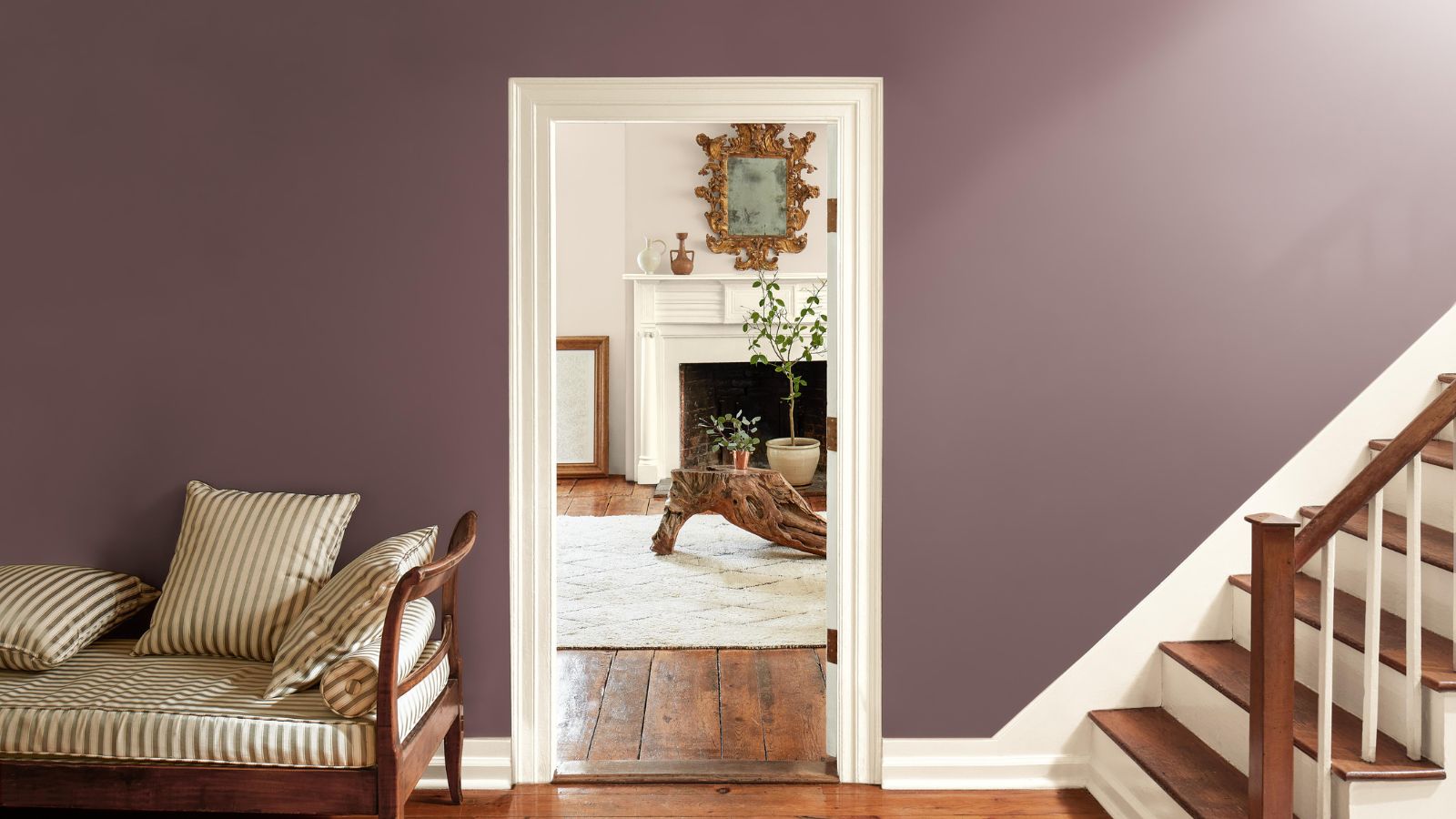 These are the colors that just don't work with purple – 4 shades to sheer clear of if you want to bring this on trend color into your home
These are the colors that just don't work with purple – 4 shades to sheer clear of if you want to bring this on trend color into your homeWhy some colors sabotage purple, and how to get it right every time.
By Sophia Pouget de St Victor